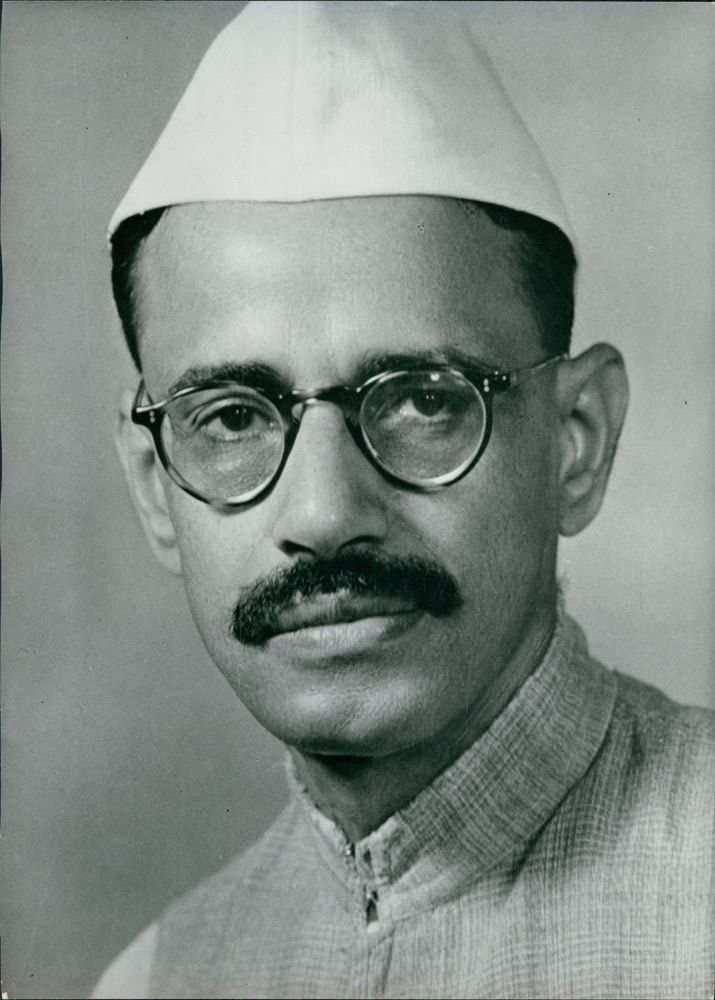Gulzarilal Nanda: The Unsung Hero Who Shaped India’s Leadership
Gulzarilal Nanda, often remembered as one of the most respected leaders of India, was a man who dedicated his life to public service. He served as the acting Prime Minister of India twice in the absence of Jawaharlal Nehru and Lal Bahadur Shastri, playing a crucial role in maintaining political stability during critical transitions. Nanda was a quiet force in Indian politics, committed to national development, social justice, and integrity. His contributions to India’s governance, though often overshadowed by more prominent figures, remain vital to understanding the country’s early post-independence leadership.
Early Life and Education
Gulzarilal Nanda was born on July 4, 1898, in the town of Sialkot, which was then part of British India and is now located in Pakistan. He came from a humble family and grew up with a strong sense of social responsibility. Nanda pursued his education at the prestigious Government College in Lahore, where he excelled academically. His passion for learning and his desire to serve the people of India led him to pursue a career in the Indian Civil Services (ICS).
- Early Career: Nanda worked with the Indian government during the British rule, where he quickly earned a reputation for his efficiency and dedication. However, his strong nationalist feelings led him to join the Indian independence movement, which was gaining momentum under the leadership of Mahatma Gandhi and Jawaharlal Nehru.
Political Career and Contributions
Gulzarilal Nanda’s political journey was deeply rooted in his commitment to India’s independence. Nanda was associated with the Indian National Congress (INC) and was an ardent follower of Gandhi’s ideology of non-violence and peaceful resistance. He was known for his calm demeanor and thoughtful approach to leadership.
- Role in India’s Independence: Nanda actively participated in the freedom struggle, particularly in the Quit India Movement of 1942, which aimed to end British colonial rule. Despite facing arrests and hardships, Nanda remained steadfast in his pursuit of India’s independence.
- Role as Acting Prime Minister: After the untimely death of Lal Bahadur Shastri in 1966, Gulzarilal Nanda served as the Acting Prime Minister of India twice, first after Shastri’s death and then after the sudden death of Nehru. His leadership during these transitional periods was crucial in maintaining political stability during uncertain times. Although he never sought the position, Nanda played a key role in managing the country’s affairs with grace, ensuring that India did not face political chaos during these difficult moments.
- Ministerial Positions: Nanda served in various key ministries throughout his career, including the Ministry of Home Affairs and the Ministry of Planning. His expertise in governance and his commitment to national development contributed significantly to India’s early post-independence planning and policies.
Gulzarilal Nanda’s Vision and Legacy
Nanda was not only a political leader but also a man of deep social consciousness. His leadership was rooted in the belief that true progress could only be achieved by uplifting the marginalized sections of society. His vision for India was centered on economic development, social justice, and secularism.
- Social Justice and Equality: Nanda was a firm believer in the need for equitable distribution of resources. He advocated for policies that focused on improving the lives of the underprivileged and ensuring equal opportunities for all citizens. His work on land reforms and social welfare programs laid the groundwork for India’s progress toward a more inclusive society.
- Economic Development: Nanda was involved in India’s early economic planning. He contributed to the formation of the Planning Commission and was an advocate of state intervention in economic development. His efforts were aimed at creating a self-sufficient India that could provide for its people without relying on foreign assistance.
- Commitment to Secularism: As a leader, Nanda emphasized the importance of maintaining India’s secular fabric. His policies were based on the idea that all religions and communities should be treated equally under the law, which helped in fostering national unity during the formative years after independence.
- Post-Independence Leadership: Nanda’s leadership, particularly during the volatile periods following the deaths of Nehru and Shastri, showed his capacity for steady governance. His ability to keep the country united and focused on its development goals during these challenging times was a testament to his leadership qualities.
Interesting Facts About Gulzarilal Nanda
- No Desire for Power: Unlike many political leaders, Gulzarilal Nanda never sought power for personal gain. He was always more interested in serving the people of India than in holding prominent positions. His leadership was driven by a sense of duty rather than ambition.
- Legacy in Education: Nanda believed that education was the key to India’s future progress. He played an active role in the development of India’s education policies and was a strong advocate for expanding access to education across the country.
- Awards and Recognition: Nanda was awarded several prestigious honors, including the Padma Vibhushan, India’s second-highest civilian award, for his contributions to Indian politics and governance.
FAQs About Gulzarilal Nanda
Q1. When did Gulzarilal Nanda serve as India’s Acting Prime Minister?
Gulzarilal Nanda served as Acting Prime Minister of India on two occasions: first after the death of Lal Bahadur Shastri in 1966 and again after the death of Jawaharlal Nehru in 1964.
Q2. What were Gulzarilal Nanda’s major contributions to Indian politics?
Nanda’s major contributions included his involvement in India’s independence movement, his leadership in maintaining political stability during transitional periods, and his role in promoting social justice and economic planning in post-independence India.
Q3. What was Gulzarilal Nanda’s stance on secularism?
Nanda was a firm believer in secularism and advocated for policies that ensured equality among all religions and communities. His vision for India was one of unity and tolerance, where people of all backgrounds could live together peacefully.
Significance and Legacy
Gulzarilal Nanda’s significance lies not in the power he held but in the integrity and responsibility with which he performed his duties. He was a man of great personal and professional ethics, dedicated to the betterment of his country and the welfare of its people. Nanda’s legacy continues to influence India’s political landscape, particularly in terms of fostering social justice, secularism, and economic development. His quiet yet powerful leadership remains a model for political figures to this day.
Gulzarilal Nanda’s life reminds us that true leadership is not always about holding power but about serving with integrity, commitment, and a vision for a better future. His unsung yet vital contributions to India’s growth remain invaluable to the nation’s journey.











Hello to all, hoow is everything, I think every one is getting more frm this website, and your
views aree good designed for neew people. https://Www.Waste-Ndc.pro/community/profile/tressa79906983/
Hello to all, how is everything, I think every onee is gettiing more from this
website, and your views are goopd designed for new
people. https://Www.Waste-Ndc.pro/community/profile/tressa79906983/
Happy to explore discussions, share thoughts, and pick up new insights throughout the journey.
I’m interested in hearing diverse viewpoints and adding to the conversation when possible. Happy to hear fresh thoughts and meeting like-minded people.
There is my site-AutoMisto24
https://automisto24.com.ua/